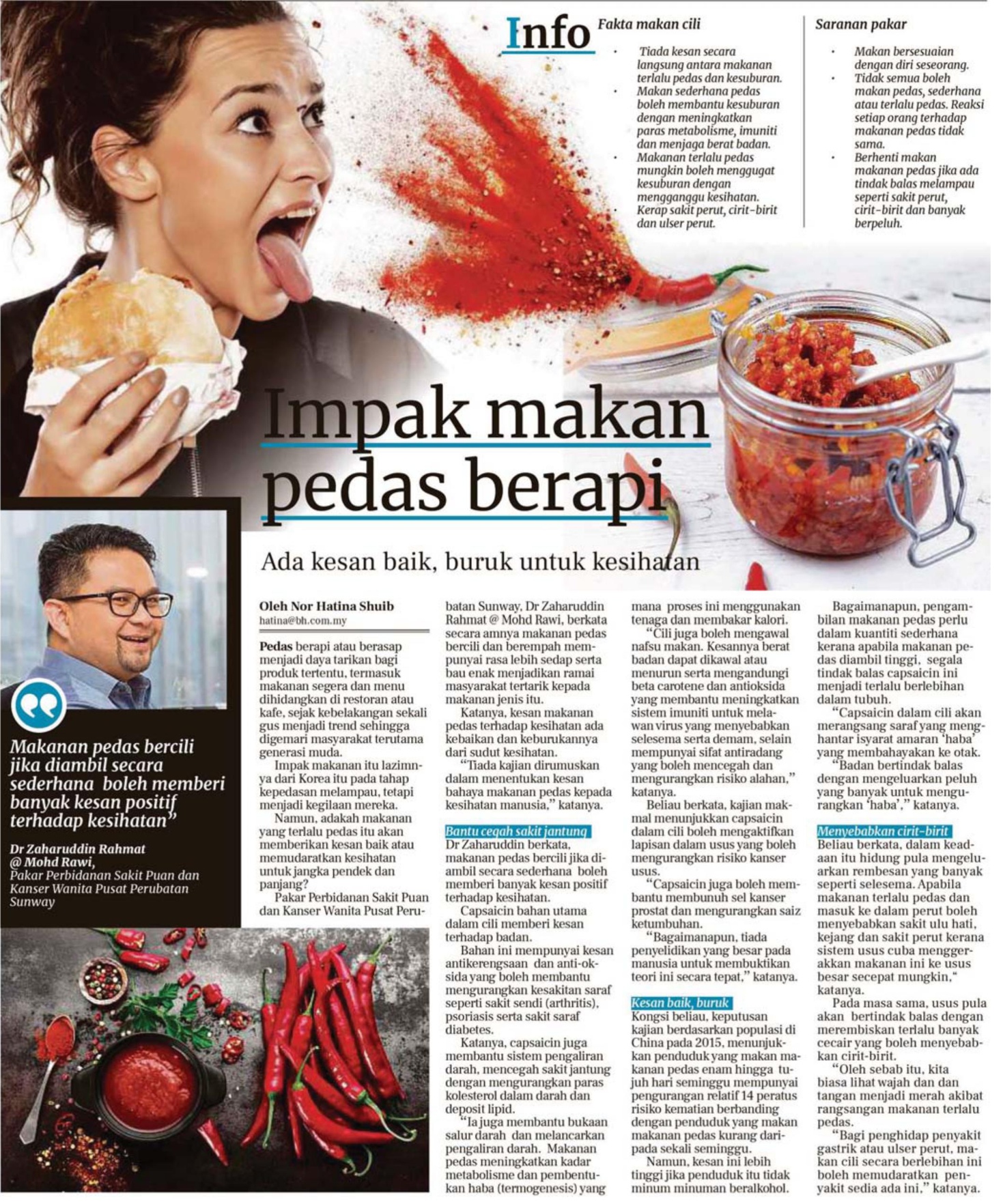The effects of spicy food
02 November 2019

Spicy or fiery flavours have been a staple in certain products including instant foods and in menus served at restaurants or cafes – and has fast become a trend that is especially popular among the younger generation. The impact is often extreme levels of spiciness, but it has become a craze among them.
However, does eating spicy food have a good or bad effect on health in the long- and short-term?
Sunway Medical Centre Gynaecologist and Obstetrician, Dr Zaharuddin Rahmat said that consuming spicy food has its advantages and disadvantages on health, and when consumed in moderation, it can have many positive effects on health. However, no studies have been conducted to determine the harmful effects of spicy food on health.
Capsaicin is the main ingredient in chili that has anti-irritant and anti-oxidant effects on the body that can help reduce nerve pains such as joint pain (arthritis), psoriasis and diabetic neuropathy. It also helps the blood circulatory system by opening the blood vessels and promoting blood flow, and prevents heart disease by reducing cholesterol levels in the blood and lipid deposits.
“Chili increases metabolism rates and formation of heat (thermogenesis) which consumes energy and burns calories. It controls appetite, allowing body weight to be controlled or reduced. Chili also contains beta carotene and anti-oxidants which strengthens the immune system against viruses that cause colds and fevers, and anti-inflammatory properties that can prevent and reduce the risk of allergies,” he said.
He added that laboratory studies show that capsaicin in chili can activate the lining in the intestine, reducing the risk of colon cancer. Capsaicin also helps kill prostate cancer cells and reduce tumour size. However, there are not many research to prove this theory accurately.
According to Dr Zaharuddin, the results of a 2015 population-based study in China show that people who eat spicy food six to seven days a week have a 14% relative reduction in mortality risk compared to those who eat spicy food less than once a week. The effect is higher if the population does not drink alcohol.
Nevertheless, spicy food needs to be consumed in small quantities because when spicy food is consumed in large quantities, the effects of capsaicin become excessive in the body.
“Capsaicin in chili stimulates the nerves that send ‘heat’ warning signals to the brain, which the body responds by releasing a lot of sweat to reduce the ‘heat’ and the nose producing excessive secretion like a flu,” he said.
Consuming food that is too spicy can cause heartburn, seizures and stomach aches as the intestinal system tries to move the food to the colon as quickly as possible. At the same time, the intestine reacts by absorbing too much fluid which can cause diarrhoea. For that reason, we often see faces and hands turning red due to spicy food.
“For those with gastric or stomach ulcer, eating too much chili can be harmful to the existing conditions,” he said.
Source: Berita Harian
Back




